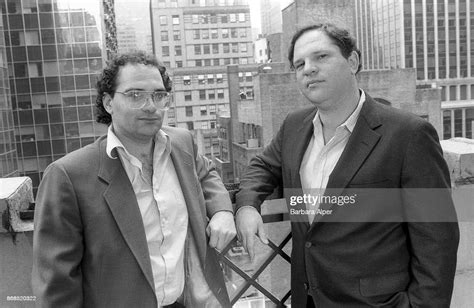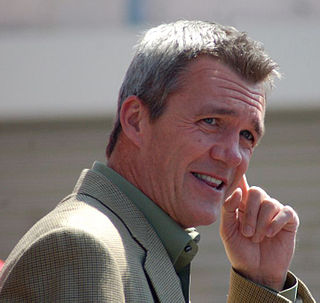A Quote by Pete Docter
You have to think about good storytelling and characters first. Then hopefully, the rest of that stuff will follow, some more than others. But if you don't have a good film and strong characters, then you don't have anything down the road.
Related Quotes
The characters are great, and this is the first adventure of the brothers Grimm, so there's plenty of potential to make a franchise. We've been quite successful in the past, so anything like that, if it does pay off with hopefully the good movie that I think it will be, it pays off also down the road.
The American horror movies are more moralistic, they have not only good characters, but characters where the ultimate danger is death. What I like about European cinema is they have another sense of what's good, what's bad, and sometimes all the characters are far more complex than just that. It's less binary, the Giallo genre.
When you create those characters that people love and care about and put them in a dark hallway, already the audience is on edge, and they feel empathy for that character. Then it's up to me to decide what jumps out in that hallway. So I think laying that foundation of strong characters and strong story is the most important thing in a horror film.
One of the things when you write, well the way I write, is that you are writing your scenario and there are different roads that become available that the characters could go down. Screenwriters will have a habit of putting road blocks up against some of those roads because basically they can't afford to have their characters go down there because they think they are writing a movie or trying to sell a script or something like that. I have never put that kind of imposition on my characters. Wherever they go I follow.
What interests Sam Mendes are characters and relationships, and he was a genius at giving you the freedom to create the type of character you want, and also to explore and have fun with your fellow actors. For him, characters and relationships are really the heartbeat of the film, and then the action is the backdrop. By developing the characters, he makes you care that much more about the action and going on a journey with the characters.
As we grow older, we should learn that these are two quite different things. Character is something you forge for yourself; temperament is something you are born with and can only slightly modify. Some people have easy temperaments and weak characters; others have difficult temperaments and strong characters. We are all prone to confuse the two in assessing people we associate with. Those with easy temperaments and weak characters are more likable than admirable; those with difficult temperaments and strong characters are more admirable than likable.
I've always liked shows that have a strong cast of secondary characters. One of the greatest examples ever I would say is 'The Simpsons.' If you think about it, you could name 100 characters recognizable from that show. I think 'Scrubs' has done a good job of having a strong team coming off the bench.
The decision to work with Marvel for a while isn't any sort of denigration of DC. I had a fantastic time there, I was treated extremely well, I have strong positive feelings about all of my editors and the DC universe of characters, and I look forward to hopefully working with them at some point down the road.
I do not often follow my characters off on tangents or change my story on a whim. I have an outline which I follow quite sternly...for a good long while. Then it turns out in some way to be insurmountably wrong and I am forced to re-think every component. Usually at this point I throw hundreds of pages away.
I like to use a bit of chaos when I shoot. I think it may be something from the way I shot my first film - I was very scared, of course, and I prepared everything, I wanted to make sure that the characters did the right thing at the right time on the storyboard. But then I realised that in life, there is so much more than what you can predict or write in advance, that when you shoot the story, it's good to leave some gaps where you lose control. I think this combination of chaos and organisation gives a kind of quality.
I think at some level, it's just alchemy that we, as writers, can't explain when we write the characters. I don't set out to create the characters - they're not, to me, collections of quirks that I can put together. I discover the characters, instead. I usually go through a standard set of interview questions with the character in the beginning and ask the vital stuff: What's important to you? What do you love? Hate? Fear? .. and then I know where to start. But the characters just grow on their own, at a certain point. And start surprising me.




































